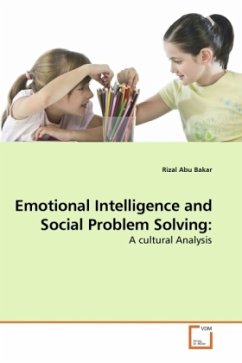The conception of emotional intelligence (EI) was first put forward by Ibnu Khaldun, an Arab writer who lived in the 14th century in his book Al- Muqaddimah. Later, Leuner (1966) published his work in a German language journal and followed by Payne (1984) who wrote about EI in his unpublished dissertation. The term was made popular by Goleman in 1995. Since gaining its popularity, EI became a topic of interest in education, psychology, human resource management and organizational development. However, less attention was given to social problem solving. This monograph explored the relationship between EI and Social Problem Solving and discussed the findings from the cultural perspectives.
Bitte wählen Sie Ihr Anliegen aus.
Rechnungen
Retourenschein anfordern
Bestellstatus
Storno








